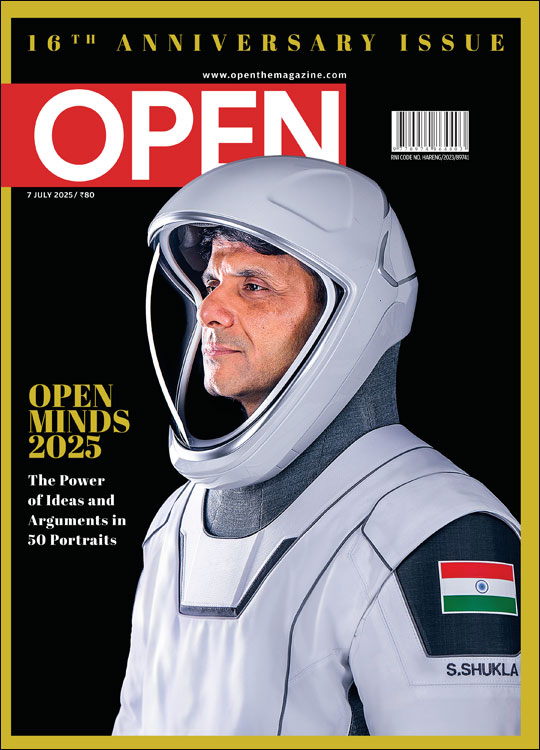The founder of Mumbai’s Quoin Academy has aced the Common Admission Test six times in as many years. But he neither prepares for these tests nor wants to join a B-school
Like most youngsters, there was a time when I wanted to crack the CAT (Common Admission Test), get into a top B-school, and hold a fancy job in the corporate sector. When I sat for my first CAT, it was 1996 and I was in my final year of mechanical engineering (at Motilal Nehru National Institute of Technology, Allahabad). In those days, management was just emerging as the career to be in, and engineering institutes were very resistant to the idea that their students should ditch engineering to enrol in a B-school. Often engineering exams would be placed as close to the CAT as possible. It was the same in my college, too. My semester exams were scheduled on the day after the CAT. The CAT centre alloted to us students in Allahabad was in Lucknow, a five-hour bus ride away. However, I was so keen on getting into one of the IIMs that I travelled to Lucknow a day before my CAT, sat for it the next day, and then immediately after the exam took a bus back to Allahabad. The next morning, I appeared for my engineering examination.
As luck would have it, I got a call from IIM-Calcutta. I was thrilled. My dream was finally taking shape. I was quite nervous during the interview. One of the three panelists asked me my opinion of the city, and I foolishly told them I disliked it. I said something about how dirty Kolkata looked. They did not seem to like my response and the interview went downhill from there on. I never got a call back.
I started preparing for CAT the following year. I prepared myself with even more vigour, but on the same pattern of questions as I had done the previous year. There was a pattern that was repeating itself in the last few tests. However, the paper I sat for was nothing like what I had imagined. I never even got a call that year.
When I think of this now, so many years later, it all seems so strange. Cracking the CAT, getting into an IIM and then a job with a fat salary—all of this is so distant.
For the past six years, I have started sitting for the CAT again. In 2006, I scored a 99.95 percentile. This was followed with 100, 99.98, 100, 99.69 and 99.98 percentiles in the following years. I even sit for Maharashtra’s MBA-CET (Master in Business Administration-Common Entrance Test) exams nowadays. In my first outing in 2010, I ranked second, scoring a 99.99 percentile. During the last two exams, I stood first, securing 99.99 again.
I think the reason I do so well now is not because I am more intelligent, but because I don’t have my previous concerns. I don’t sit for the test to ace it or get into a top B-school. I don’t even want a job. I sit for the exam simply to understand the changing pattern of exam papers, so I can tutor students in my tutorial better.
After I failed to get admission to an IIM, I got a seat in Jamnalal Bajaj Institute of Management Studies (JBIMS) in Mumbai, where I completed my MBA. From then on, my professional career began. For a while, I worked for NIIT Limited, where I was responsible for setting up their centres in Maharashtra. Later, Institute of Management Studies (IMS) hired me; they wanted me to be in charge of their Thane centre. This was the life I had wanted to live, but I was slowly getting disenchanted with it. My life was now a rat race, and I was nothing but a rat competing with others. Work consumed much of my life. I would put in long hours at work, and I never had any time for my family. It was then that I started nursing a dream, wondering how it would be to run a small tutorial of my own, where I would teach. Then one day, I chanced upon Paulo Coelho’s book The Alchemist. The book changed my life. I realised that if I wanted to do something, I had to do it right away, and not live in fear of what might go wrong. I quit my job in 2005. The job paid me well, somewhere around Rs 7 lakh annually, but I was fine with giving that up. I used up my savings to start an academy. All I could afford then was a dingy room in Thane with a monthly rent of Rs 3,000, where I would teach students.
It was supposed to be a tutorial for students preparing for their class 10 board exams, but no one turned up. Once that failed, I changed the focus of the tutorial to help those preparing for their BMS (Business of Management Studies) exams. Later, I expanded the ambit of the tutorial to cater to those preparing for the CAT and MBA-CET. It wasn’t hugely successful or anything, but I was finally happy.
After less than a year of helping MBA aspirants, I realised that some of the students in my class were very bright. I couldn’t just use a textbook to teach them how to solve a question. I needed to know how to approach a question differently. That’s why I appeared for CAT the following year—to understand problem-solving better, and
see how question patterns change. I knew I had done well, but I was in for a shock when I heard of the results. I continued doing this, and as word about my good performances spread, I also started getting more students. My academy now has three centres: in Thane, Kalyan and Dadar.
I, however, don’t prepare for these exams. I don’t sit for mock exams or go through books. All I learn is from interactions with students in my class. Otherwise, I am busy with the academy’s administration-related work, or spending time with my family. I now have three children—a five-year-old daughter, a three-year-old son, and now a 15-day-old baby girl—and they take up a sizeable amount of my time.
For instance, last year on 23 October, just a day before I appeared for my CAT, I held classes for students preparing for the same examination from 9 am to 1 pm in Thane. Then I took a local train to Dadar, where I held similar classes from 3 pm to 8 pm. When I got back home, I was very tired, and I could only spend a few hours playing with my children. On the morning of the examination, I dropped my eldest daughter to school on a scooter, then took a train to Belapur to my exam centre.
One of the reasons that many students don’t perform as well as they can is simply pressure. If you don’t view it as a make-or-break situation, his or her performance will be much better.
Unlike what many might think, I wasn’t a child prodigy. As a kid, I would languish somewhere at the bottom of the class. Many even thought I was up to no good. I worked hard for my class 10 boards (SSC), and I secured
83 per cent. However, I was never confident of my abilities. It was later in my Plus 12 that I realised I was a decent student, and with some hard work, I could perform well. I worked hard and in my class 12 boards (HSE), I got 78 per cent.
Now that I have fulfilled what I wanted, running my own tutorial, I have started setting myself small goals. Last year, for instance, I made it a point that by the end of this year, I would have an international rating in chess, and that I would be fit enough to compete in a half-marathon. I started preparing for both. I have been a bit of a chess player since I was young, but I started practising harder. Earlier, in January this year, I was able to complete the half marathon. The other goal was attained even more easily. In October last year, I enrolled myself in the city’s Mayor’s Cup, a chess tournament. I looked at it as a tournament where I would get some practice, and see how poor my game was. Surprisingly, I beat six rated players. I now have an Elo rating of 1609.
I have introduced my eldest daughter, Ynez D’Souza, to chess. She can pursue whatever she wants when she becomes older, but I want her to have a well-rounded education. MBA degrees are not all that matter. Small things like chess also do.
As told to Lhendup G Bhutia
/wp-content/uploads/2015/11/true-CAT.jpg)

/wp-content/uploads/2025/06/Cover-OpenMinds2025.jpg)












More Columns
Puri Marks Sixth Major Stampede of The Year Open
Under the sunlit skies, in the city of Copernicus Sabin Iqbal
EC uploads Bihar’s 2003 electoral roll to ease document submission Open